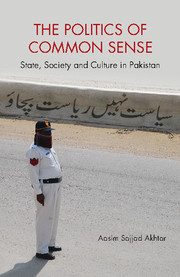Book contents
- Frontmatter
- Dedication
- Contents
- Preface
- Acknowledgments
- 1 Introduction
- 2 The Structure of Power ‘From Above’
- 3 Accumulation in Practice
- 4 The Many Faces of Islam
- 5 The Nation that Never Became
- 6 The Subordinate Classes: Beyond Common Sense?
- 7 Epilogue: What does a Counter-hegemonic Politics Look Like?
- Glossary
- Bibliography
- Index
1 - Introduction
Published online by Cambridge University Press: 05 July 2018
- Frontmatter
- Dedication
- Contents
- Preface
- Acknowledgments
- 1 Introduction
- 2 The Structure of Power ‘From Above’
- 3 Accumulation in Practice
- 4 The Many Faces of Islam
- 5 The Nation that Never Became
- 6 The Subordinate Classes: Beyond Common Sense?
- 7 Epilogue: What does a Counter-hegemonic Politics Look Like?
- Glossary
- Bibliography
- Index
Summary
Introduction
There is no human activity from which every form of intellectual participation can be excluded: homo faber cannot be separated from homo sapiens. Each man carries on some form of intellectual activity, that is, he is a philosopher, an artist, a man of taste, he participates in a particular conception of the world, has a conscious line of moral conduct, and therefore contributes to sustain a conception of the world or to modify it, that is, to bring into being new modes of thought.
Antonio Gramsci (1971: 9)Pakistan is one of the most written about, yet least understood countries in the world. It is often reduced to a series of categories that obfuscate more than they illuminate. Both in journalistic and scholarly accounts, the imperative of comprehending complex political, economic and cultural dynamics is thwarted by the predominance of monolithic narrative tropes such as ‘Islamic’ and ‘terrorism’.
The events of 9/11 and subsequent developments explain much of the security-oriented literature that has proliferated in recent years. This recent trend aside, most scholarly works on Pakistan's state and society have never strayed very far from descriptive macro-level accounts which detail, in chronological fashion, the continuities and changes associated with different political regimes.
These mainstream accounts are premised, overtly or otherwise, on static readings of state and society; the former often depicted as an island of modernity struggling to impose itself on a society whose cultural moorings are incompatible with the imperatives of socio-economic change and progressive politics.
In fact, the relationship between state and society is far more complex than most academic treatments of Pakistan have generally acknowledged. Only by constructing a thoroughly historicized narrative in which the interplay between myriad economic, political and cultural moments is clearly enunciated can one make sense of the contemporary social order in Pakistan.
In contravention to both ‘security studies’ and mainstream political histories, a grounded brand of scholarship has emerged in recent years featuring both substantial empirical insights about state and society and novel theoretical approaches. This book is a modest attempt to add to this growing archive. In it, I chart how a particular conception of navigating the everyday – what I call the politics of common sense – has become hegemonic across the length and breadth of Pakistan's society over the past three decades.
- Type
- Chapter
- Information
- The Politics of Common SenseState, Society and Culture in Pakistan, pp. 1 - 30Publisher: Cambridge University PressPrint publication year: 2017



